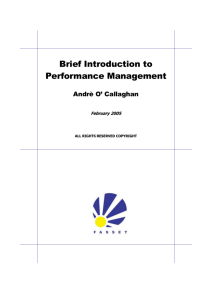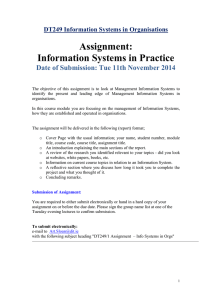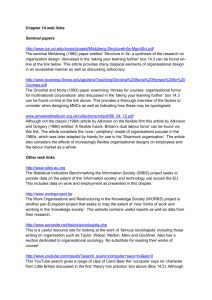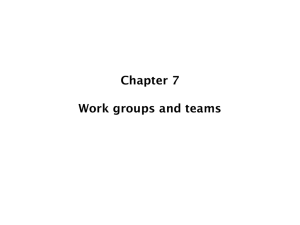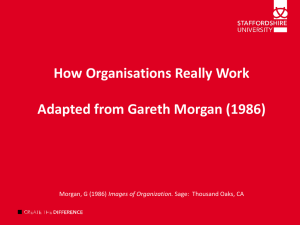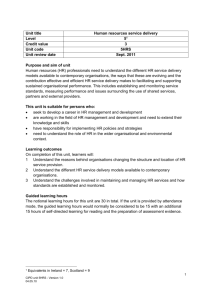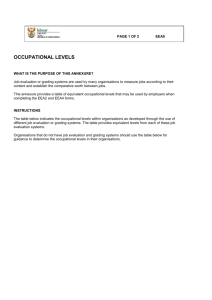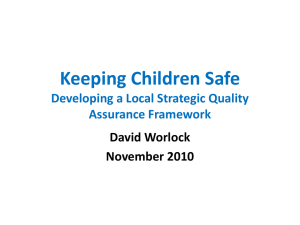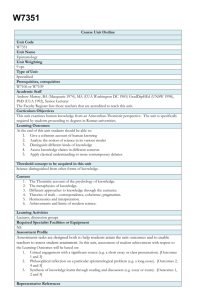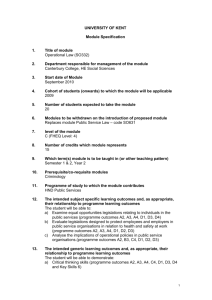Recommended previous knowledge - RIS
advertisement
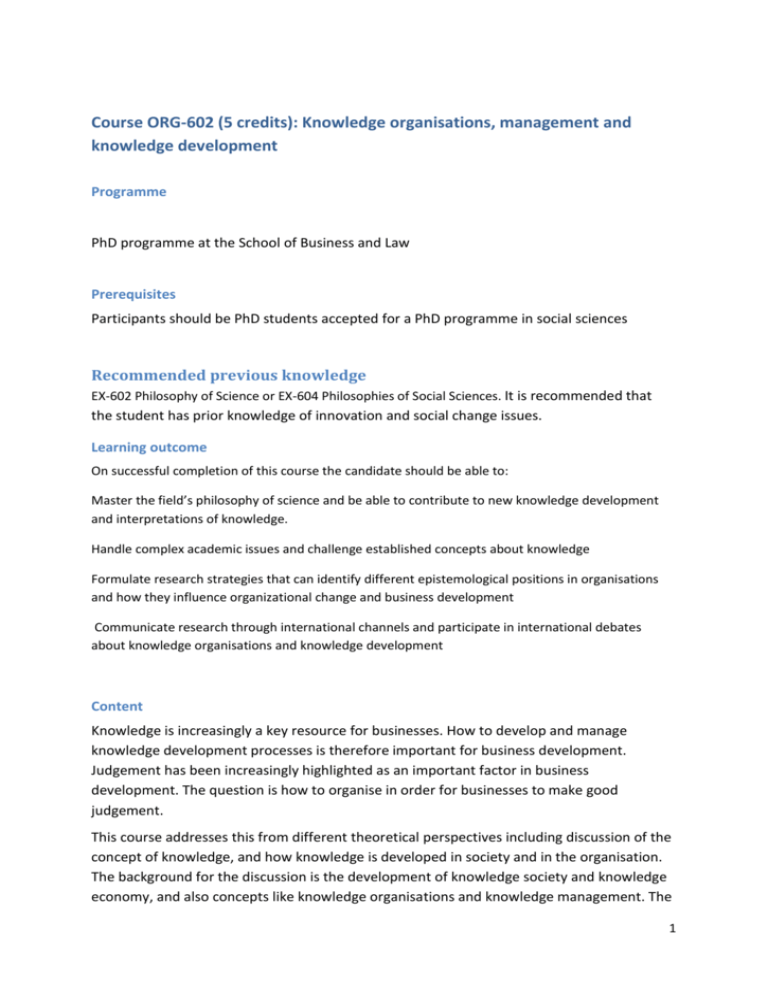
Course ORG-602 (5 credits): Knowledge organisations, management and knowledge development Programme PhD programme at the School of Business and Law Prerequisites Participants should be PhD students accepted for a PhD programme in social sciences Recommended previous knowledge EX-602 Philosophy of Science or EX-604 Philosophies of Social Sciences. It is recommended that the student has prior knowledge of innovation and social change issues. Learning outcome On successful completion of this course the candidate should be able to: Master the field’s philosophy of science and be able to contribute to new knowledge development and interpretations of knowledge. Handle complex academic issues and challenge established concepts about knowledge Formulate research strategies that can identify different epistemological positions in organisations and how they influence organizational change and business development Communicate research through international channels and participate in international debates about knowledge organisations and knowledge development Content Knowledge is increasingly a key resource for businesses. How to develop and manage knowledge development processes is therefore important for business development. Judgement has been increasingly highlighted as an important factor in business development. The question is how to organise in order for businesses to make good judgement. This course addresses this from different theoretical perspectives including discussion of the concept of knowledge, and how knowledge is developed in society and in the organisation. The background for the discussion is the development of knowledge society and knowledge economy, and also concepts like knowledge organisations and knowledge management. The 1 course tries to go beyond these concepts and discuss what knowledge is at how it is developed in a social and organisational context. The course is a development of EX-604, and is building on the theory of science discussions in EX-602. Key approaches that will be addressed, are: Knowledge management Organisational judgement Organisational epistemology Social epistemology Expert knowledge The course will discuss professional organisations and the role of expert knowledge from the perspective of epistemological systems and link this discussion to the discussion of sustainable work systems. Teaching methods Lectures and group work Examination requirement The candidate has to attend at least 80% of mandatory lectures and group work. The candidate has to hand in reflection papers on time, and take an active part in discussions in the course. Assessment methods and criteria Exam paper, 10 pages. Pass/Fail - where Pass must be equivalent to the letter grade B or better. Offered as a single course Yes. Responsible faculty School of business and law, University of Agder. Language of instruction English. 2 Contact person Hans Christian Garmann Johnsen Work form and work load 5 ECT is equivalent to 135 work hours. Recommended distribution of work load: Preparation/reading Reflection papers Attending teaching Group work Discussion Writing exam paper Sum 40 10 30 10 10 35 135 hours Literature (Required reading appx. 600 pages) Foss, N. J., & Klein, P. G. (2012). Organizing entrepreneurial judgment: A new approach to the firm. Cambridge University Press. Goldman, Alvin and Dennis Whitcomb (Editor). 2011: Social Epistemology: Essential Readings. Oxford: Oxford University Press. Fuller, Steve: 2002. Knowledge management foundations. Oxford: Butterwoth/Heinemenn. Johnsen, Hans Chr Garmann: 2014: The new natural resource. Farnham: Gower. Articles, including: o chapters from Habermas: Knowledge and Human interests and The philosophical discourse of modernity, o chapters from Ruccio and Amariglio. 2003: Postmodern moments in modern economics. o Chapters from Cetina, K. K. (2009). Epistemic cultures: How the sciences make knowledge. Harvard University Press. o Foss, N. J., Klein, P. G., Kor, Y. Y., & Mahoney, J. T. (2008). Entrepreneurship, subjectivism, and the resource‐based view: toward a new synthesis. Strategic Entrepreneurship Journal, 2(1), 73-94. Assessment of candidates Final paper: pass/non pass 3
